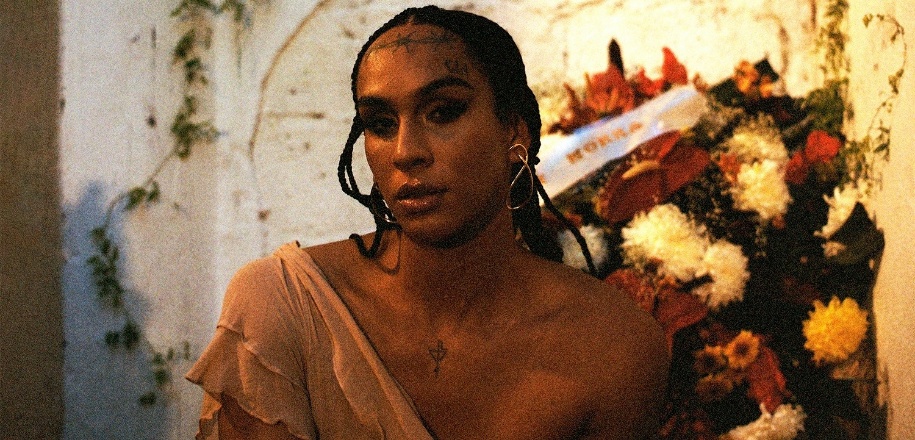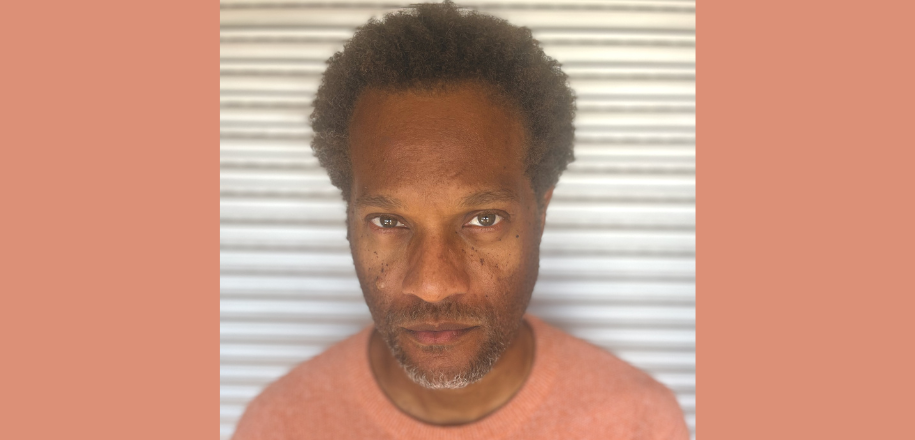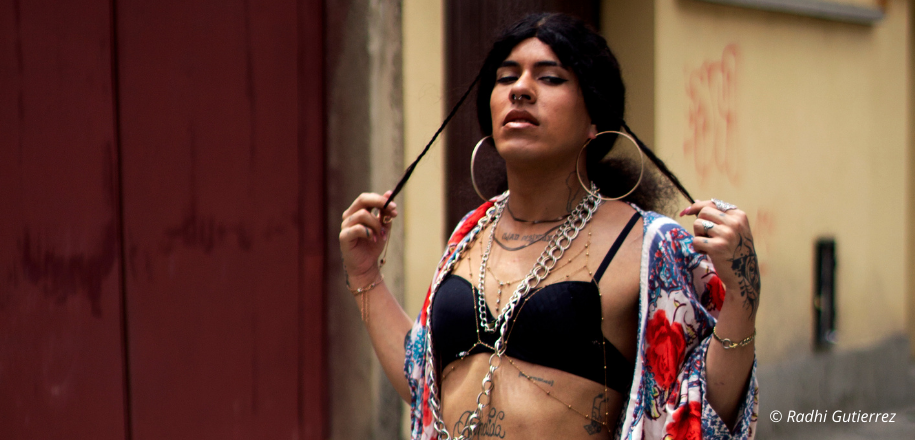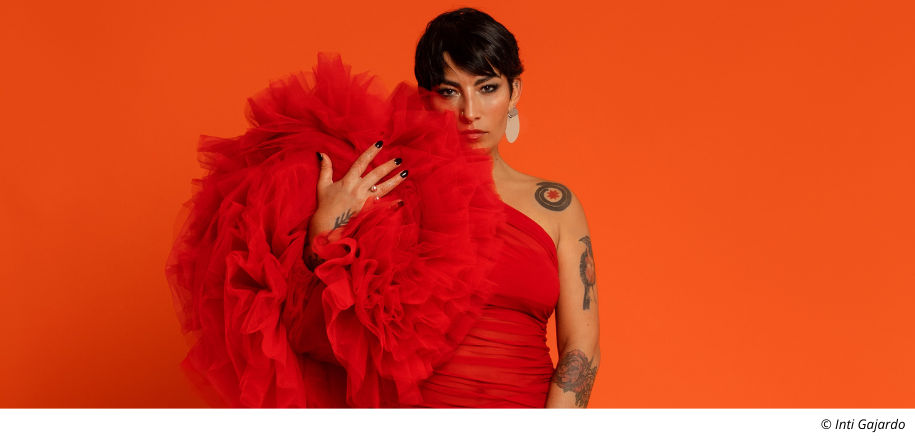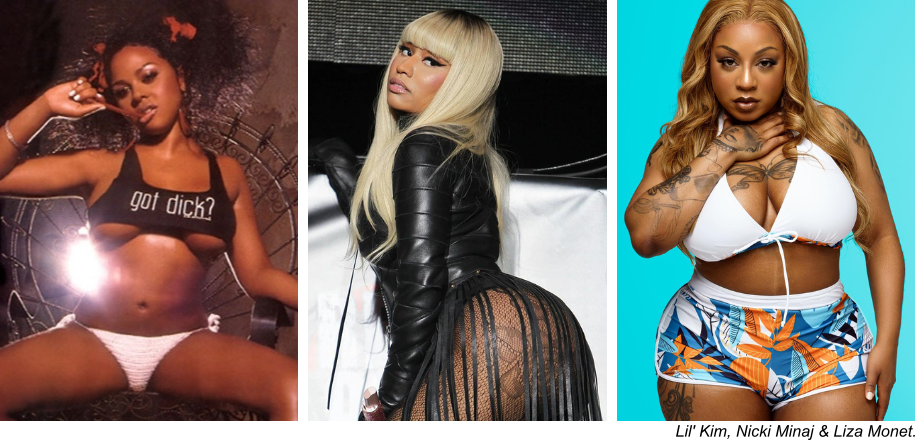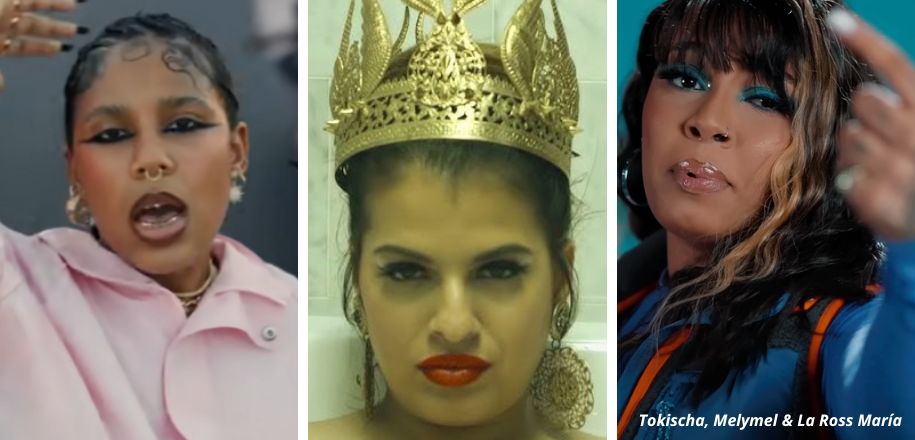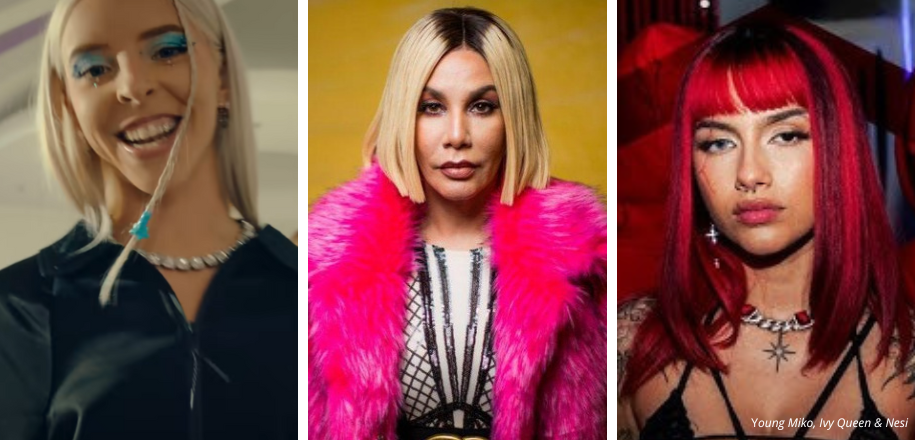A rapper, singer, composer, actress and an antiracist/pro-LGBTQIA+ activist, Linn da Quebrada identifies as a “Black trans and queer woman”. Raised a Jehovah’s Witness, she grew up in the favelas of São Paulo. In 2017, the success of her album Pajubá, created as a trans equivalent of Beyonce’s Lemonade, made her a queer icon on the Brazilian music scene. The artist told us about her journey in hip hop, her activism and her plural and inclusive art that transcends labels.
How and when were you introduced to hip hop for the first time?
My contact with hip hop ended up being a bit late, about the end of my adolescence. I didn’t even think about writing or singing, but when I started doing theater, I got very close to my body and started to better elaborate the issues that worried me. At that moment, music became a possibility and an impossible tool at the same time. I had no idea how and if I could really do that. It was a time when I lived with Liniker – another trans woman and famous Brazilian singer -, and I remember how seeing the nuances and powers that she built also drove me.
Then, I thought that music could be a good channel for dialogue and communication for me too. The style or the form did not come before the content but went together. And I saw, mainly in funk, a path where I would like to go. I felt it made perfect sense. I realized that in addition to talking about my desires and affections, I could also create and produce new desires and affections. I wrote what I wanted to hear, for the pleasure of saying every word and thus organizing my thoughts.
Still, I didn’t necessarily intend to make rap or funk as I didn’t feel like a singer. I sang to be heard, to understand and be confused at the same time. The songs came out almost like a gush. When I saw it, I already had 8 songs ready, half funk, half rap, and a lot of me. So I have been walking with music, on a path where what I feel and want to feel makes sense and allows us to meet.
How did you start rapping?
I grew up watching and imitating the movements of É O Tchan! and Brazilian TV shows such as Chiquititas, Fada Bela, Domingo Legal, Praça é Nossa. I grew up smiling at Vera Verão, a famous drag queen and popstar we had on Brazilian TV, while others laughed in the living room. I grew up dancing to Lacraia, a trans woman that also danced on several TV shows. I believe that I ended up incorporating a little bit of all of that. Of all of them.
“My family had a great weight on my formation.”
Who were your role models while growing up?
When I think about the models and personalities that I had during my growth, I see that my family had a great weight on my formation. And still have. With all the pros and cons involved, and everything else that can fit between these poles.
I grew up in a family with many women. Strong, angry women, who raised their sons and daughters on their own, who had to deal with the abandonment of husbands, who spent a lifetime looking to get married to also be someone else’s women. Women who got frustrated because of that. Who dealt with that frustration, who hardened and created shells to protect themselves. Women who became walls to protect me, and taught me that I, too, would have to learn to protect myself.
I grew up under the model of God. I grew up learning that we were made in His image and likeness. But it seems that the more I grew up, the more different from that image I became, and thus, the more I moved away from that model.
You were raised as a Jehovah’s witness. How did it influence the building of your identity?
Religion had and has a fundamental role in my education. I had a very strict and very loving upbringing as one of Jehovah’s Witnesses. I studied the Bible a lot, from an interpretation that saw the choices that I would come to take as sins. This caused me to create a guilty relationship with myself. And precisely for that reason, it led me to break this relationship and take responsibility for myself and my decisions.
I believe that my relationship to religion, added to my relationship to oratory, words, and even to writing, worked in my favor. It taught me to connect with myself and to understand that I can only believe in a God who also believes in me. That is why I feel that my music and art carry this relationship between the sacred and the profane. Where I find bodies that build and strengthen these egregores along with me.
You come from Sao Paulo. What is your relationship to this city?
When I was a teenager and lived in the countryside, I always wanted to live in São Paulo. In my mind and that of so many other people, I believe, it was the city of opportunities. But these opportunities are not so well distributed to all. I liked the vigor, the movement, the new, the encounter, the difference. And all of this was really precious for me to find people who would strengthen and enhance my ideas. So that I could become another one also from these relationships and allow new ideas to emerge as well.
“I see São Paulo as a path and not as a finish line.”
However, today I see how São Paulo also takes a lot from us. I see how unfair this relationship is in terms of having to migrate here in order to have supposed economic and financial possibilities. I am, yes, very grateful to everything that I built here and to all that I knew, of all the movement that we generate and everything that we have built. But I understand how important it is to broaden our horizons and see beyond the borders that the “paradise of the southeast” promises us. To go beyond that need to move to the center. Where despite all the wealth and cultural prosperity that we find in the peripheries, on the edges and on the margins, even so, to transform this into a bargaining chip we have to move to the center.
For this reason, São Paulo for me continues to be a city full of contradictions that culminated in the meeting and the mismatches that made my creations possible, but that I currently see as a path and not as a finish line.
If someone doesn’t know your music and wants to discover it, which track would you advise them to listen to first and why?
It would depend a lot on when that person knew me. But today, in particular, I would tell her to listen to Quem soul eu” (Whoever I am). Because I see myself and I recognize myself in the game I play with words, with the tone of my voice. I recognize myself in doubt, in uncertainty. In fear and courage. In the melody. In the arrangements composed by BadSista. This is one of my compositions that I like the most, I think it’s mature and well built. And mainly for carrying the question that defines me: who am I, after all? After having been “Bixa Preta”, “Mulher”, “Bixa Travesty”, quem soul eu?
Many of your songs are empowering anthems for cis, trans and Black women. Would you say your music is a form of activism?
I see my music as part of the tools and platforms that I use to make art and communicate, to build bridges. I understand that people also see what I do as activism or artivism, and that this starts from a view that understands our actions in a political way. And that’s why I don’t take that category for myself.
“Black, trans and feminist women are plural.”
For, in my view, all artistic and aesthetic manifestations are political. I don’t even want to go too far on this issue, but I see that in the vast majority of times these determinations are born from a market that intends to categorize us, separate us and, thus, predict our movements. Perhaps this is what binds us, the market. Or the way that this market appropriates our brands and scars to make their slogans, within their brands and institutions. Incorporating us into your corporations.
Since all this multiplicity of black, trans and feminist women is very plural, with different demands, needs, locations and guidelines. Even so, they are all in a certain way at the mercantile crossroads where our body is. The body unites us, connects us and differentiates us.
You’re also an actress, a TV host and an advocate for LGBTQIA rights. How do you combine all these activities?
I combine all this with the greatest pleasure! I love each of these things that I do because I feel that it is at the junction and in the meeting of them that I find myself as an artist. I don’t feel like I’m a singer, but I sing. I sing to be heard and I also sing to find silence.
“I put myself out of the need to talk about myself so I can hear.”
In acting, I feel that my body serves as a channel and that, there, I have the possibility to live other frequencies, other stories and narratives. I can rub and fictionalize my body in new, or other, relationships. And being as curious as I am, interviewing other people is a great pleasure. I put myself in a space to look at the other, out, out of the mirror and the need to talk about myself so I can hear. Open the window. And jump.
How do you usually write? Do you have any routines or favorite topics?
It changes a lot. Even more than I would like. With Pajubá everything came out in a rush. When I saw it, I already had an entire record. I knew what I meant. I knew what had to be said. I had a very clear and transparent target. Although the target, too, does not have white skin, in my case. Because I sang to myself, because I needed to hear. And most of the time this is how I go. I do it because I need to.
But things can be even more complex, because sometimes we don’t know or have the wit and necessary cruelty to understand what we really need. That is the question that moves me right now, where am I going? Which cut needs to be made? What wounds need to be healed? Where to orient my gaze, in which tree do I nest and establish my home? Maybe I’m like a little bird that is always learning to sing. And when it’s not flying, it lands. Because pause is also movement. So I compose: decomposing.
In France, people often think that hip hop is the most LGBTphobic music genre. What do you reply to that?
I feel that this happens not only in France, much less that it is something of the hip hop movement, or of music. We live in an LGBTphobic society. And, to be honest, I even get tired of having to repeat it all the time. Because if we look around us, we will realize that very few spaces have our presence. Almost none, especially in the job market. We know that and pretend we don’t see it. We pretend we can and have that privilege. Me and mine don’t have that possibility. What we notice is our absence. Or sometimes the concealment of the single representativeness that aims to distract us with someone who represents a whole community, whole, multiple and plural.
“Here we are, invading, occupying, tensioning, improving, diversifying and transforming these spaces.”
So I don’t say that hip hop is still quite LGBTphobic. For that, I would have to say that journalism, cinema, the church, television, theater, contemporary arts, engineering, medicine – and another endless list – are very LGBTphobic. But despite that, here we are, invading, occupying, tensioning, improving, diversifying and transforming these spaces. Including music and also hip hop.
Here in Brazil, we have several examples of groups and singers who have built beautiful, strong and powerful works in this sense. That they may not have so much reverberation precisely because of a phobic and addicted LGBT network that I pretended not to see, until it became unsustainable. A network that has, little by little, collapsed under our eyes.
What impact do Bolsonaro policies have on Black trans people in Brazil?
What we have noticed is that it has done a complete disservice to the entire population, a mismanagement to all. Not only the TLGB community, which has been hit hard by the lack of public policies and planning that takes our bodies into account, but we have all seen their unpreparedness to deal with the government.
Even more so at a time like this pandemic, where a population that already lives on the margins, without a job, often without housing, has nowhere to find enough resources to stay alive and minimally safe, in a situation like this. It is these moments that show that our bodies do not matter and are not a priority.
At the same time, we have some very positive points being built politically here, in our country. We have Erica Malunguinho, as a state deputy, doing a brilliant and urgent job. And we also have Erika Hilton, elected city councilor in the city of São Paulo, as the best voted woman in 2020. In other words, we live in an unstable field and full of contradictions in our territory. However, a territory in movement, under tension and transformations.
Find Linn da Quebrada on her website, Instagram, Facebook, Twitter and YouTube.

